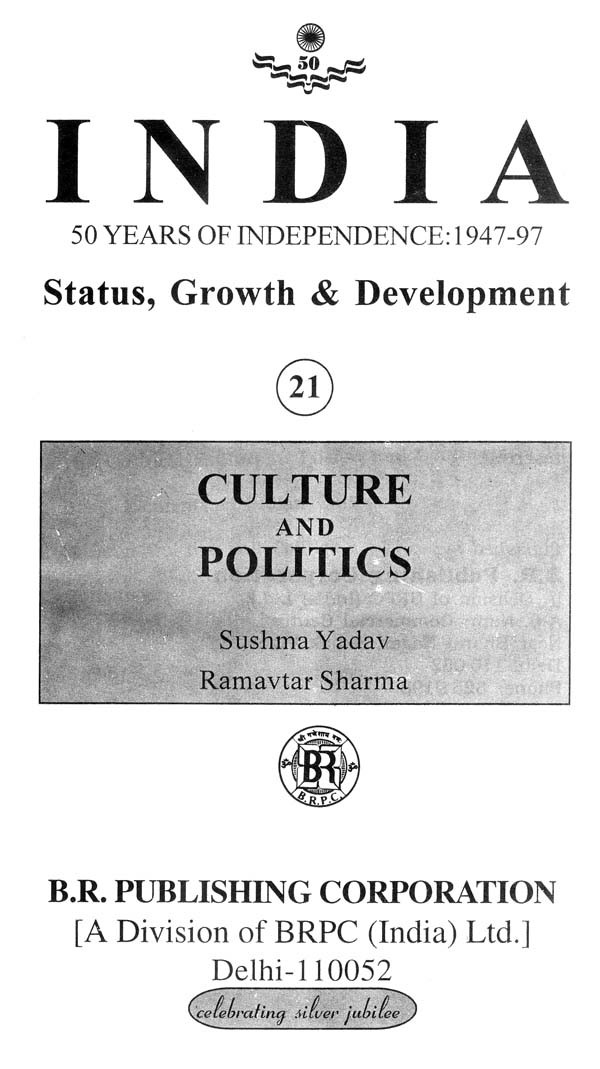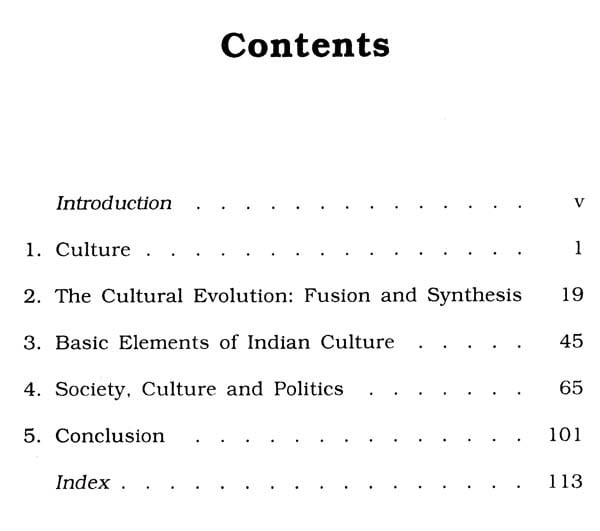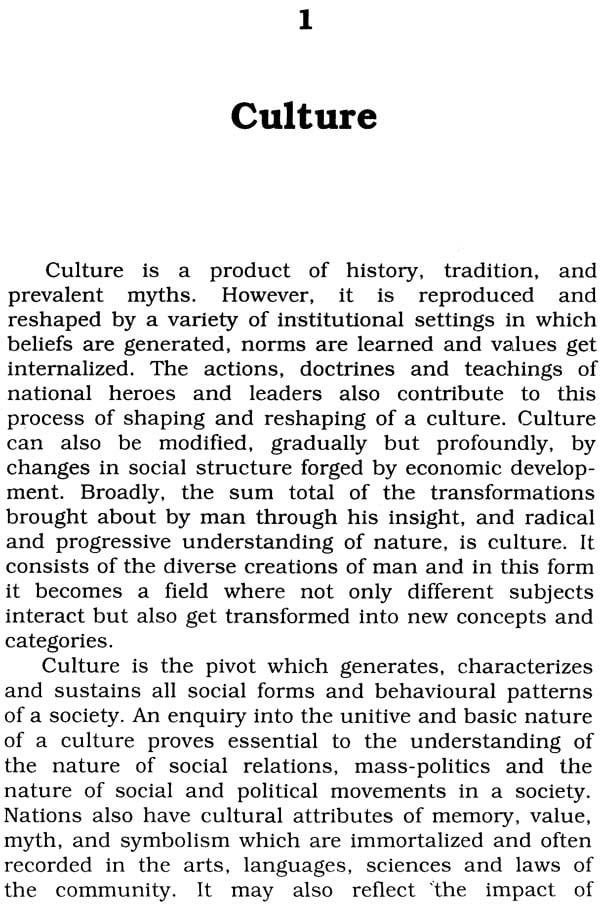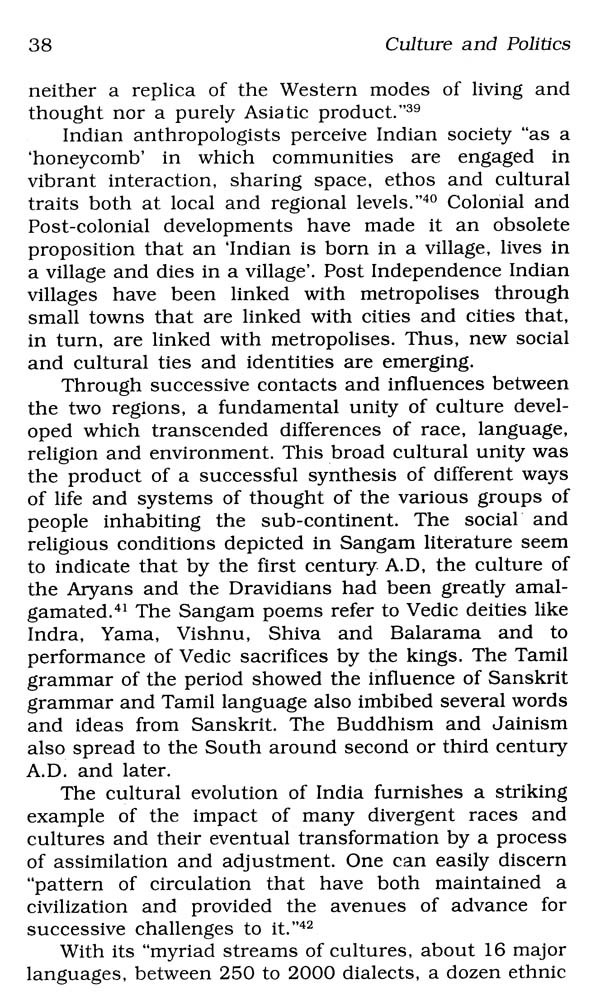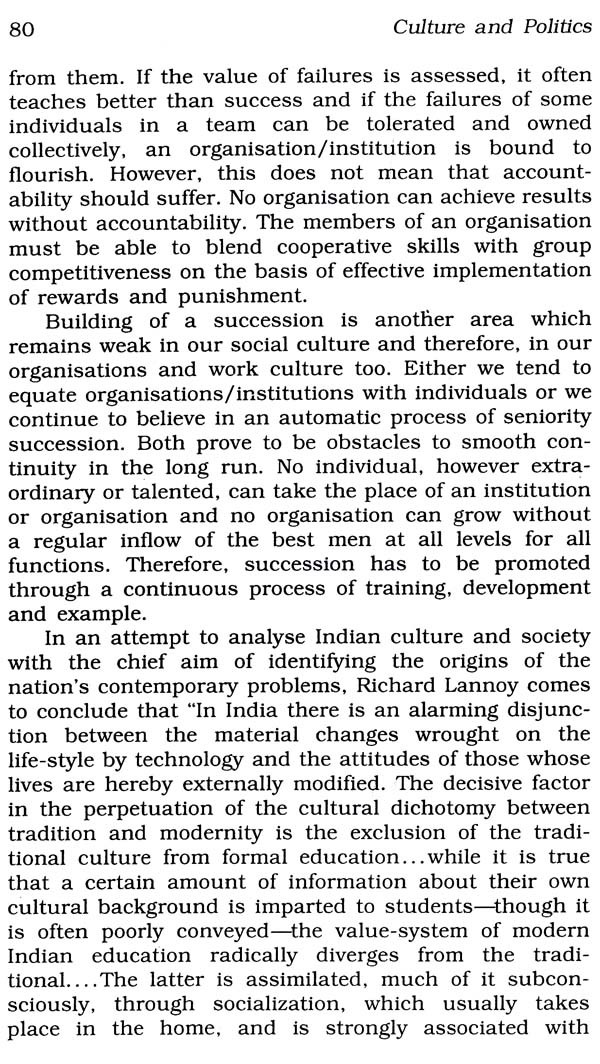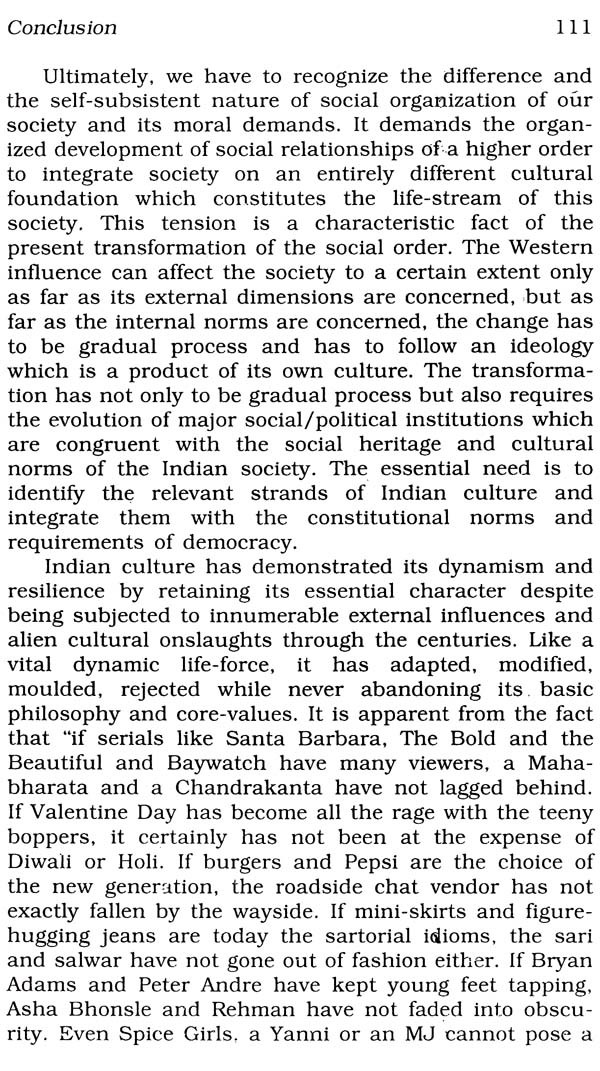
India 50 Years of Independence: 1947-97 Status, Growth & Development- Culture and Politics (Part-21)
Book Specification
| Item Code: | AZE726 |
| Author: | Sushma Yadav and Ramavtar Sharma |
| Publisher: | B.R. PUBLISHING CORPORATION |
| Language: | ENGLISH |
| Edition: | 1998 |
| ISBN: | 817646001X |
| Pages: | 124 |
| Cover: | HARDCOVER |
| Other Details | 9.00x6.00 |
| Weight | 280 gm |
Book Description
This book offers an analysis of the changes in social structure, cultural values and political institutions. This analysis is based on a critical understanding of the political evolution of India since earliest times; its political traditions, ideas and institutions; their interaction with culture; the colonial encounter and the changes that followed; political ideas that evolved during the national movement, political institutions adopted by free India; their relevance and acceptability among masses, their capacity to solve the problems; the changes in patterns of leadership and political values and beliefs in post independence India.
Dr. Ramavtar Sharma, is Principal, Maharaja Agrasen College, University of Delhi. He has edited and authored a number of books.
Culture is the essence of civilization. It does not appear in forms of massive edifices. Yet it refines, polishes and makes life beautiful. Civilizations rise, fall and sometimes totally disappear. But culture not only survives. it gets enriched during periods of ferment. Thus it strives to reconcile spirit with matter. Therefore, no future progress and development can be complete without engaging oneself with one's culture.
The Indian culture consists of a number of cultural beliefs, ritual patterns and behavioral norms which have evolved over centuries and this is also reflected in the political culture of Indian masses.
**Contents and Sample Pages**
